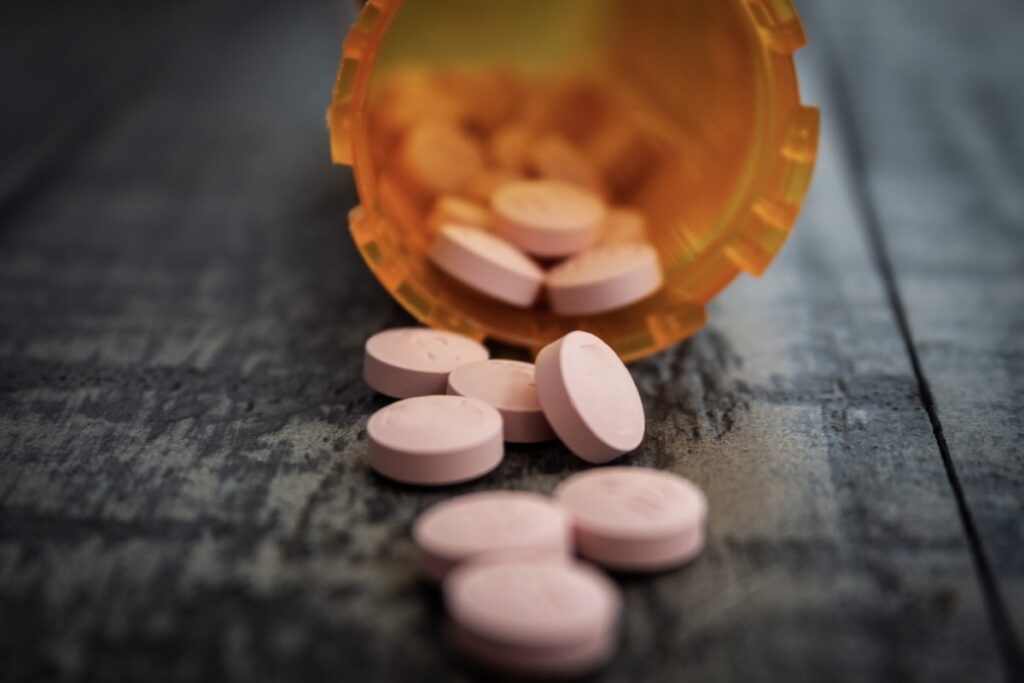Written by: Daniel Umfleet
Medically reviewed by: Dr. Nathan Smith
With Problem Gambling Awareness Month ending, we want to draw attention to a topic that rarely gets the coverage that it deserves, prescription meds and gambling disorder. The role that medication can inadvertently play in driving unexpected compulsive behaviors when a person has been prescribed meds to assist with a mental health disorder or disease unrelated to gambling disorder is often overlooked.
Disordered gambling, also called gambling addiction or pathological gambling, is a serious and often debilitating condition that affects millions of people worldwide. It is characterized by an uncontrollable urge to gamble despite negative consequences and can lead to severe financial, social, and psychological problems. While there are several factors that can contribute to the development of disordered gambling, the use of certain prescription medications commonly used to treat a wide range of health conditions have been linked to an increased risk of developing disordered gambling. In this blog, we will discuss the prescription drugs that amplify harmful gambling behaviors.
3 Types of Prescription Drugs That Are Known to Increase the Risk of Problematic Gambling Behavior
I. Dopamine Agonists
Dopamine agonists, a type of medication that stimulates dopamine receptors in the brain, are commonly used to treat Parkinson’s disease and restless leg syndrome. However, research has shown that these drugs can also increase the risk of disordered gambling behavior. The relationship came to light when several sleep doctors began reporting impulsive gambling behavior in their patients with RLS. A later study published in the journal, Movement Disorders, found that up to 8% of patients taking dopamine agonists reported problematic gambling behaviors.
2. Antipsychotics
Atypical antipsychotics, such as aripiprazole, are commonly used to treat bipolar disorder and schizophrenia. While these medications can be effective in managing symptoms of these conditions, they can also increase the risk of disordered gambling behavior. A study published in the Journal of Clinical Psychopharmacology found that patients taking aripiprazole experience higher rates of severe gambling problems than others.
3. Stimulants
Stimulants are medications that are commonly used to treat attention-deficit/hyperactivity disorder (ADHD) and narcolepsy. While they are generally safe and effective, some stimulants, such as methylphenidate and amphetamines, have been linked to an increased risk of disordered gambling behaviors. These relationships are complicated by the fact that ADHD and Gambling Disorder are often comorbid, making a clear understanding of causal relationships difficult.
Studies have shown that these drugs can affect the levels of dopamine in the brain, which can lead to an exaggerated response to rewards and an increased risk of developing disordered gambling behaviors.
It is important to note that not everyone who takes these medications will develop disordered gambling behavior. However, individuals who are already at risk for gambling disorder or have a history of gambling problems should be closely monitored when taking these medications.
What does this mean in terms of numbers?
It means that when considering what ‘at risk’ looks like in terms of the number of people in the population that might develop a gambling problem, we also need to count the 6.1 million kids between the ages of 12 and 17 that have been diagnosed with ADHD and especially the 62% of them (approximately 3.78 million) that are currently taking stimulant medication for their diagnosis, also the 500k Americans that are currently living with Parkinson’s Disease, and finally the 4 million Americans who are currently taking antipsychotic medication.
The biggest point to make here is that the conversation of what a high-risk population for Gambling Disorder looks like goes well beyond race, creed, color, socio-economic status, job category, sex, and age. The conversation needs to widen outside of those lines and include the 10.5 million or more Americans that are simply strung together by one common variable: they consume a medication designed to solve one health issue that increases their likelihood of developing or exacerbating a gambling problem.
If you or someone you know is experiencing problematic gambling behavior, it is important to seek professional help as soon as possible.
In conclusion, prescription medications can have unintended consequences, including an increased risk of disordered gambling behavior. Healthcare professionals should be aware of this potential risk when prescribing certain medications, and individuals taking these medications should be aware of the potential increase in impulsive behaviors. If you or someone you know is experiencing problematic gambling behavior, seek professional help immediately.
Sources:
Dodd, M. L., Klos, K. J., Bower, J. H., Geda, Y. E., Josephs, K. A., & Ahlskog, J. E. (2005). Pathological gambling caused by drugs used to treat Parkinson disease. Archives of neurology, 62(9), 1377-1381.
Weintraub, D., Siderowf, A. D., Potenza, M. N., Goveas, J., Morales, K. H., Duda, J. E., … & Stern, M. B. (2006). Association of dopamine agonist use with impulse control disorders in Parkinson disease. Archives of neurology, 63(7), 969-973.
Grosset, K. A., Macphee, G., Pal, G., Stewart, D., Watt, A., Davie, J., & Grosset, D. G. (2006). Problematic gambling on dopamine agonists: not such a rarity. Movement disorders: official journal of the Movement Disorder Society, 21(12), 2206-2208.
Tippmann-Peikert, M., Park, J. G., Boeve, B. F., Shepard, J. W., & Silber, M. H. (2007). Pathologic gambling in patients with restless legs syndrome treated with dopaminergic agonists. Neurology, 68(4), 301-303.
Mété, D., Dafreville, C., Paitel, V., & Wind, P. (2016). Aripiprazole, gambling disorder and compulsive sexuality. L’encephale, 42(3), 281-283.
Concerned That You’re At-Risk?
Kindbridge’s virtual treatment center for gambling disorder offers support services in a confidential, safe, and welcoming environment. If you’re at-risk and concerned that certain medications may make you gamble more, please click the banner below:


